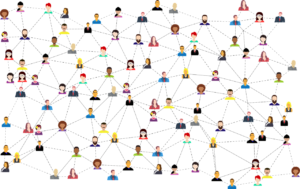Social Communication Disorder
Social Communication Disorder
Social communication disorder is also called pragmatic communication disorder. It is a type of neurodevelopmental disorder and its symptoms starts to develop in early developmental stage of life. In social communication disorder individual have persistent difficulty in nonverbal and verbal communication for social communication. The individual with SCD have difficulty to build relationship as he or she struggles to use language appropriately in social situations. Some symptoms of social communication disorder overlap with autism spectrum disorder but it is different from ASD. For an individual who don’t meet the criteria of autism spectrum disorder, SCD may occur. Social communication disorder and autism spectrum disorder both includes restricted and repetitive behaviors. So, social communication disorder is a condition that make hard for individual to talk and indulge effectively in social communications.
Diagnostic Criteria of Social Communication Disorder
The diagnostic criteria of SCD according to DSM 5TR is
Diagnostic Criteria A.
Individual have Persistent problems with verbal and nonverbal communication in social use as demonstrated by all of the following:
- Individual lack communication skills for social purpose for example for greetings and for sharing information. The individual’s social communication is inappropriate to the social context.
- Individual have rigid social communication means have inability to change the communication according to the context. For example individual is unable to speak differently in paly ground and in class room.
- Individual have impairments in following the rules for conversation and storytelling. Individual have difficulties for rephrasing when the listener misunderstood or unable to take turns in the conversation. Individual is unable to use verbal and nonverbal signs and cues in the conversation.
- individual have difficulty in understanding idioms, metaphors, humor or multiple meaning depending upon context for interpretation.
Diagnostic Criteria B.
The presence of above mentioned symptoms shows functional restrictions in effective communication, academic achievements, occupational performance and social relationship of the individual.
Diagnostic Criteria C.
The symptoms of social communication disorder starts to develop in the early developmental period of life. But the social communication deficit is fully manifested when communication demands exceed the limited capacities of the individual.
Diagnostic Criteria D.
The lack of social communication is not due to other medical condition or due to any neurological condition.
Social (Pragmatic) Communication Disorder is characterized by basically trouble with pragmatics for example trouble with the social skills for better social communication in dif

ferent social contexts. Individual have limited understanding of social rules for both verbal and nonverbal social communication in natural settings. This insufficient social communication skill results lack of social interests, minimal social connections.
Development and Course
As Social (pragmatic) communication is all about social communications either verbal or nonverbal and is depending upon developmental progress of speech and language in child so the diagnosis of social communication disorder is made by the age of 4 or 5 years. It is rarely diagnosed in child under the age of 4 years. If the social communication disorder is of milder intensity than it may be not apparent until early adolescence. A family with having the history of Autism spectrum disorder, specific learning disorder or communication disorder have high risk of social communication disorder.